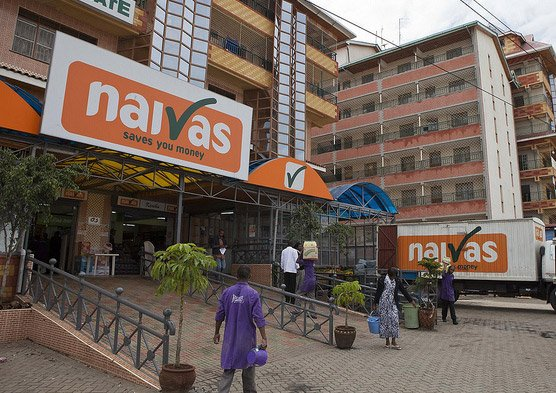The sun has barely risen, and the busy hum of student life at Rongo University begins to stir. However, for some students, the hustle starts even earlier—out of necessity. Beyond the classroom, they switch roles from learners to entrepreneurs, juggling their studies and small businesses to keep their dreams of education alive.
For these students, financial challenges at home are not an excuse to give up but a motivation to persevere. Their stories highlight resilience, ingenuity, and the need for financial independence, even while they carry the burden of coursework and exams.
In the late afternoons, just as classes end, fourth-year student Benjamin Mutiso heads to a makeshift stall at the university gate. With a tray of boiled eggs and smokies in hand, he serves fellow students looking for a quick snack. Pursuing a degree in Communication and Journalism, Benjamin has become known across campus not just for his entrepreneurial spirit but also for the cheerfulness with which he serves his customers.

“I realized that waiting for money from home was no longer sustainable,” Benjamin says, peeling an egg between customers. “My parents struggled with paying fees, and I couldn’t let that stop me. Selling eggs and smokies has helped me pay for basic needs like meals and printing materials for assignments.”
Benjamin shares how difficult it was at first to manage his time between studies and business.
“Balancing both is not easy. Some days I sleep late after long hours of class, but I remind myself why I’m doing this. It’s about survival.” He adds, with a smile, “And once I graduate, I’ll have both a degree and business skills under my belt.”
Winfer Mwebi, a third-year student in the School of Education, has found her niche selling vegetables and fruits to her peers. A vibrant and determined young woman, Winfer explains that her background pushed her into entrepreneurship.
“I come from a humble family, and my parents do what they can. But there are times when it’s not enough, especially with the rising cost of living,” she says.
She began her venture with a few borrowed shillings, buying bananas, oranges, and tomatoes to resell.
“At first, I was shy about selling to students because I feared being judged,” she admits. “But I’ve learned that there’s dignity in earning an honest living, no matter what others think.”
Managing both her education and her business requires discipline.
“I wake up early to buy fresh produce and still make it to my morning lectures. After class, I handle my customers. It’s all about planning,” Winfer says, noting how these small earnings enable her to meet her personal expenses and reduce the financial burden on her family.
For John Otieno, selling electronics is not just a side hustle—it’s his passion. A third-year student majoring in Business Management, John started selling earphones, phone chargers, and other gadgets to earn income and build a customer base in preparation for life after university.
“My parents struggled to keep me in school, and I didn’t want to be a burden,” he recalls. “I figured that with so many students on campus, there was a good market for affordable electronics.”
John spends his free time networking with suppliers and learning the basics of business management, applying some of what he learns in class to real-life scenarios.
“Balancing business and academics is tough,” he acknowledges, “but I see it as a form of training. In the real world, you have to multitask to survive.”
His venture has also given him confidence, knowing that even if he doesn’t land a job immediately after graduation, he can expand his business and become self-reliant.
The stories of Benjamin, Winfer, and John are just a few among many at Rongo University, where students are increasingly turning to entrepreneurship to bridge financial gaps. According to a recent survey by the institution, nearly 40% of students run small businesses to support themselves, a reflection of both rising education costs and economic hardship at home.
“Time management is key,” says Benjamin. “There are days when it feels overwhelming, but I have to remind myself that education is the priority. I make sure to attend all my lectures and submit assignments on time.”
Winfer echoes this sentiment, adding that striking the right balance requires sacrifice.
“Sometimes you miss out on social activities, but the goal is to complete your studies while staying afloat financially. It’s a small price to pay for independence.”
John points out that despite the challenges, his business experience has made him more focused.
“It forces you to be organized, to think ahead, and to appreciate the value of hard-earned money,” he says. “When you run your own business, you understand that nothing comes easy.”
The students also express gratitude for the support they receive from peers and lecturers, who encourage them to keep pushing forward.
“Some lecturers understand our situations and offer advice on managing time,” says Winfer. “They remind us that these challenges are shaping us into better people.”
Despite the difficulties, all three students remain optimistic about their futures. Benjamin hopes to expand his food business while pursuing a career in journalism. Winfer dreams of becoming a teacher and a successful entrepreneur, using her experiences to mentor students facing similar challenges. John envisions building his electronics business into a sustainable enterprise after graduation.
Their journeys highlight an essential truth: with determination, resourcefulness, and hard work, students can overcome financial challenges without compromising their academic goals. These young entrepreneurs are not only securing their education but also learning invaluable life lessons that will serve them well beyond the classroom.
As the sun sets over the university, Benjamin’s stall draws its final customers for the day, Winfer checks her stock for tomorrow, and John attends to a last-minute request for a phone charger. These students may be hustling to make ends meet, but their dreams are alive—and so is their determination to succeed,no matter the odds.











